-
Contains 4 Component(s), Includes Credits
Hospital cultures may impede the creation of a family centered response to pediatric trauma care. Not every environment supports the healthcare worker in their own internal health and wellbeing. This presentation describes opportunities for every professional to create the necessary internal tools while suggesting some external vectors of trauma informed care.
-
You must log in to register
- Non-member - $60
- Member - $35
- Student - $15
- More Information
-
You must log in to register
-
Contains 4 Component(s), Includes Credits
International and national frameworks on children’s rights place children’s participation in decision-making at the top of the political agenda. The Netherlands is a country that consistently ranks particularly high on numerous international and European rankings, including rankings related to children’s rights, health, wellbeing, and happiness. In pediatric health care practice, however, children’s rights to participation in decision-making can be challenging to implement. This webinar will provide an overview of key literature currently informing children’s rights to participation in decision-making and share the findings from a focused ethnographic doctoral study exploring the perspectives of twelve child life specialists and five hospital directors on children’s participation in decision-making across two pediatric hospitals in the Netherlands in 2020-2021. Due to COVID-19, children were not interviewed. The findings provide insights into the role of power relations and paradoxical ideas related to children’s agency and rights, which can shape children’s participation in decision-making. In turn, the findings introduce children’s participation in decision-making as a complex, contextual, and relational concept. Based on the study findings, participants in this webinar will engage with more critical ways of incorporating children’s participation in decision-making in pediatric health care practice. Suggested Domain: Ethics 1.0 PDU
-
You must log in to register
- Non-member - $60
- Member - $35
- Student - $15
- More Information
-
You must log in to register
-
Contains 4 Component(s), Includes Credits
Many of our children come from diverse backgrounds which may be informed by Adverse Childhood Experiences that existed before a particular pediatric diagnosis. The trauma may or may not be connected to the illness. Understanding the nature of trauma and how pediatric disease and treatment may extrapolate trauma factors is essential to providing appropriate psycho-social care.
-
You must log in to register
- Non-member - $60
- Member - $35
- Student - $15
- More Information
-
You must log in to register
-
Contains 4 Component(s), Includes Credits
Child Life professionals follow a code of ethical principles guided by the Association of Child Life Professionals’ mission, vision, values statements and operating principles. In our modern world, child life practice is expanding and growing every day beyond the hospital and into the community. When providing home-based and community-based child life sessions, professionals are guided by the same ethical principles as their hospital-based colleagues, but in homes and community-based settings, they face different boundary issues and challenges. This webinar explores common ethical concerns faced in home-based and community-based child life and shares insights and strategies to apply ethical principles and gain competence in navigating each situation. Participants will be able to: • identify unique insights that home sessions can provide for child life patient assessments. • identify common ethical issues and challenges that arise during home sessions. • apply appropriate personal and professional ethics when facing ethics and boundary issues during home and community sessions. • develop competence in navigating ethical situations in the home and community setting. Suggested Domain: Ethics Recording date: 2020
-
You must log in to register
- Non-member - $60
- Member - $35
- Student - $15
- More Information
-
You must log in to register
-
Contains 3 Component(s), Includes Credits
This webinar will provide an overview of ethical foundations relevant to Child Life practice and will gain knowledge related to making ethical decisions in Child Life practice
-
You must log in to register
- Non-member - $60
- Member - $35
- Student - $15
- More Information
-
You must log in to register
| Access Date | Quiz Result | Score | Actions |
|---|
